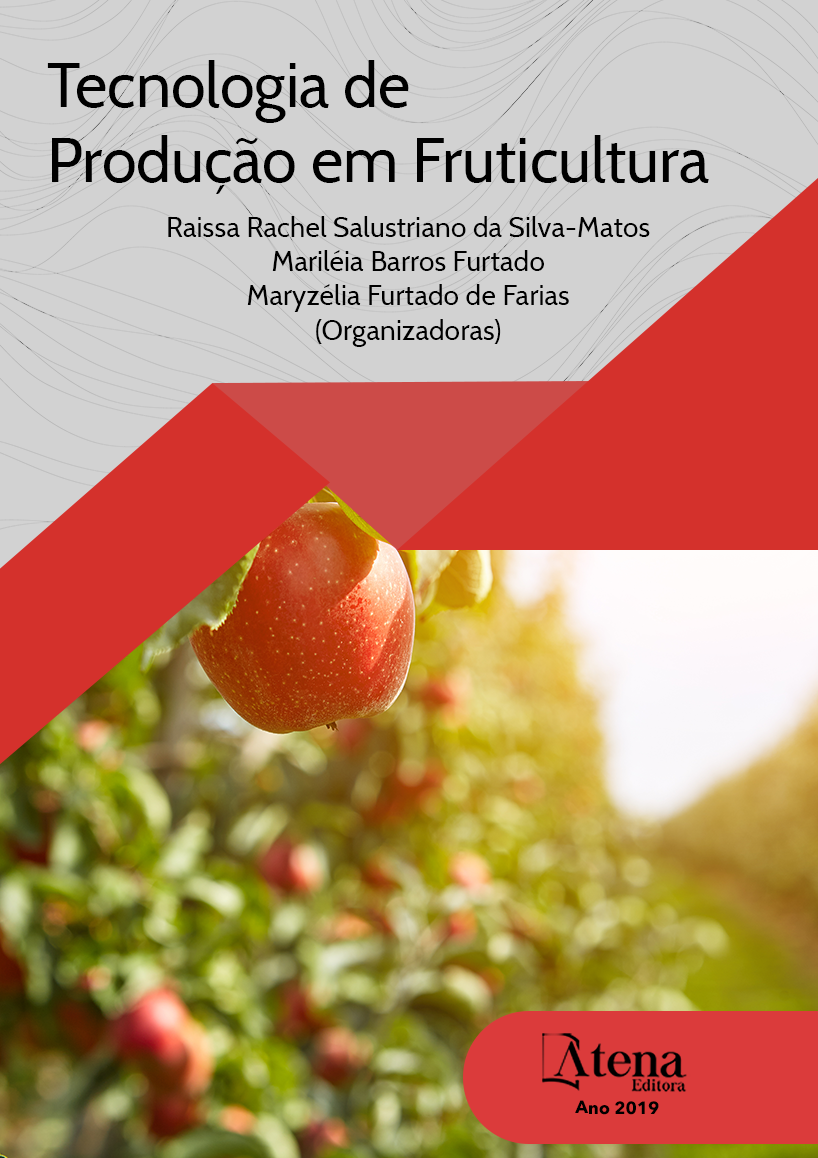
USO DE ESTERCO BOVINO COMO SUBSTRATO ALTERNATIVO NA PRODUÇÃO DE MUDAS DE MAMÃO
Analisando a demanda por
substratos com eficiência nutricional na indústria
agropecuária tem-se mostrado a relevância no
uso de esterco bovino na produção de mudas e
comercialização, diante da demanda o trabalho
objetivou avaliar a utilização do esterco bovino
como substrato alternativo na produção de
mudas de mamão. O experimento de mudas de
mamão (Carica papaya L.) a base de esterco
bovino foi conduzido entre os períodos de outubro
a dezembro, em casa de vegetação localizada
na Universidade Federal do Maranhão, no
Centro de Ciências Agrárias e Ambientais,
localizado no município de Chapadinha- MA,
situado a 03º44’30” de latitude Sul, 43º21’37”,
de longitude Oeste e altitude média de 107
m. O presente município pertence à região
do cerrado maranhense com clima quente e
úmido classificado por Köppen como Aw. Foi
utilizado delineamento inteiramente atualizado
com seis tratamentos em que os substratos
foram compostos com esterco bovino (EB) e
solo (S) retirado próximo ao setor de viveiros
da instituição, com as seguintes proporções:
T1- 100% S (testemunha), T2- 20% de EB +
80% de S, T3- 40% de EB + 60% de S, T4- 60%
de EB + 40% de S, T5- 80% de EB + 20% de
S e T6- 100% de EB, sendo conduzido com
quatro repetições. Verificou-se através do teste
F que houve diferença significativa (p<0,05)
nos tratamentos para todas as variáveis
analisadas. O esterco bovino pode ser utilizado
como um substrato alternativo na produção
de mudas de mamão, pois permite acréscimo
no desenvolvimento da muda, obtendo assim
resultados satisfatórios. Recomenda-se o uso
de substrato alternativo a base de esterco
bovino na proporção de 80% de EB + 20% de
solo por apresentar os melhores resultados para a maioria das variáveis analisadas.
USO DE ESTERCO BOVINO COMO SUBSTRATO ALTERNATIVO NA PRODUÇÃO DE MUDAS DE MAMÃO
-
DOI: 10.22533/at.ed.0311909107
-
Palavras-chave: Resíduo animal, sustentabilidade, Mudas de qualidade.
-
Keywords: Animal waste, sustainability, Quality seedlings.
-
Abstract:
Analyzing the demand for substrates with nutritional efficiency in the
agricultural industry has shown the relevance in the use of cattle manure in the production
of seedlings and commercialization, in view of the demand the work aimed to evaluate
the use of cattle manure as an alternative substrate in papaya seedlings production.
The experiment of papaya (Carica papaya L.) seedlings based on cattle manure was
conducted between October and December, in a greenhouse located at the Federal
University of Maranhão, at the Center for Agricultural and Environmental Sciences,
located in the municipality of. Chapadinha - MA, situated at 03º44’30” south latitude,
43º21’37”, west longitude and average altitude of 107 m. The present municipality
belongs to the region of Cerrado Maranhão with hot and humid climate classified by
Köppen as Aw. A completely updated design was used with six treatments in which
the substrates were composed of cattle manure (EB) and soil (S) removed near the
institution’s nursery sector, with the following proportions: T1- 100% S (control), T2-
20% EB + 80% S, T3- 40% EB + 60% S, T4- 60% EB + 40% S, T5- 80% EB + 20%
S and T6- 100% of EB, being conducted with four repetitions. It was verified through
the test F that there was significant difference (p <0,05) in the treatments for all the
analyzed variables. Bovine manure can be used as an alternative substrate in the
production of papaya seedlings, as it allows for increased seedling development, thus
obtaining satisfactory results. It is recommended to use an alternative substrate based
on cattle manure in the proportion of 80% EB + 20% of soil because it presents the best
results for most of the analyzed variables
-
Número de páginas: 14
- Gênesis Alves de Azevedo
- Carlos Alberto Araújo Costa
- Ramón Yuri Ferreira Pereira
- Thaynara Coelho de Moraes
- Gabriela Sousa Melo
- Gustavo dos Santos Sousa
- Raissa Rachel Salustriano da Silva-Matos
- Raissa Rachel Salustriano da Silva Matos


